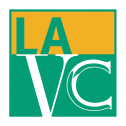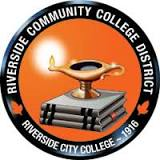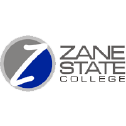What do they do?
Purchase machinery, equipment, tools, parts, supplies, or services necessary for the operation of an establishment. Purchase raw or semifinished materials for manufacturing. May negotiate contracts.
Also known as:
Buyer, Procurement Official, Procurement Specialist, Purchasing Administrator, Purchasing Agent
-
-0.7%
Change
Ranks #43 in job growth rate1,890Job Openings
Ranks #10 in net job growth
Colleges with the most graduates that become Purchasing Agents, Except Wholesale, Retail, and Farm Products
Looking for colleges that offer a specific major? Use the College Match Tool to find your best-matched schools and discover your estimated Net Price!
Most Popular Majors that prepare Purchasing Agents, Except Wholesale, Retail, and Farm Products
-
#1
-
Degrees Granted
59
-
Female Students
35
-
Male Students
24
-
Median Starting Salary
$48,168
-
-
#2
-
Degrees Granted
39
-
Female Students
24
-
Male Students
15
-
Median Starting Salary
$39,500
-
-
#3
-
Degrees Granted
4
-
Female Students
4
-
Male Students
0
-
Median Starting Salary
$48,168
-
People in this career often have these skills:
- Reading Comprehension - Understanding written sentences and paragraphs in work-related documents.
- Negotiation - Bringing others together and trying to reconcile differences.
- Active Listening - Giving full attention to what other people are saying, taking time to understand the points being made, asking questions as appropriate, and not interrupting at inappropriate times.
- Speaking - Talking to others to convey information effectively.
- Complex Problem Solving - Identifying complex problems and reviewing related information to develop and evaluate options and implement solutions.
- Writing - Communicating effectively in writing as appropriate for the needs of the audience.
- Critical Thinking - Using logic and reasoning to identify the strengths and weaknesses of alternative solutions, conclusions, or approaches to problems.
- Active Learning - Understanding the implications of new information for both current and future problem-solving and decision-making.
- Monitoring - Monitoring/Assessing performance of yourself, other individuals, or organizations to make improvements or take corrective action.
- Persuasion - Persuading others to change their minds or behavior.
- Judgment and Decision Making - Considering the relative costs and benefits of potential actions to choose the most appropriate one.
- Management of Financial Resources - Determining how money will be spent to get the work done, and accounting for these expenditures.
- Social Perceptiveness - Being aware of others' reactions and understanding why they react as they do.
- Time Management - Managing one's own time and the time of others.
People in this career often know a lot about:
- English Language - Knowledge of the structure and content of the English language including the meaning and spelling of words, rules of composition, and grammar.
- Administration and Management - Knowledge of business and management principles involved in strategic planning, resource allocation, human resources modeling, leadership technique, production methods, and coordination of people and resources.
- Customer and Personal Service - Knowledge of principles and processes for providing customer and personal services. This includes customer needs assessment, meeting quality standards for services, and evaluation of customer satisfaction.
- Mathematics - Knowledge of arithmetic, algebra, geometry, calculus, statistics, and their applications.
- Economics and Accounting - Knowledge of economic and accounting principles and practices, the financial markets, banking, and the analysis and reporting of financial data.
- Law and Government - Knowledge of laws, legal codes, court procedures, precedents, government regulations, executive orders, agency rules, and the democratic political process.
- Production and Processing - Knowledge of raw materials, production processes, quality control, costs, and other techniques for maximizing the effective manufacture and distribution of goods.
People in this career often have talent in:
- Written Comprehension - The ability to read and understand information and ideas presented in writing.
- Oral Comprehension - The ability to listen to and understand information and ideas presented through spoken words and sentences.
- Oral Expression - The ability to communicate information and ideas in speaking so others will understand.
- Written Expression - The ability to communicate information and ideas in writing so others will understand.
- Problem Sensitivity - The ability to tell when something is wrong or is likely to go wrong. It does not involve solving the problem, only recognizing that there is a problem.
- Deductive Reasoning - The ability to apply general rules to specific problems to produce answers that make sense.
- Inductive Reasoning - The ability to combine pieces of information to form general rules or conclusions (includes finding a relationship among seemingly unrelated events).
- Information Ordering - The ability to arrange things or actions in a certain order or pattern according to a specific rule or set of rules (e.g., patterns of numbers, letters, words, pictures, mathematical operations).
- Speech Recognition - The ability to identify and understand the speech of another person.
- Speech Clarity - The ability to speak clearly so others can understand you.
- Near Vision - The ability to see details at close range (within a few feet of the observer).
People in this career often do these activities:
- Evaluate applicable laws and regulations to determine impact on organizational activities.
- Execute sales or other financial transactions.
- Purchase products or services.
- Negotiate contracts with clients or service providers.
- Analyze business or financial data.
- Establish organizational guidelines or policies.
- Train personnel to enhance job skills.
- Supervise employees.
- Maintain data in information systems or databases.
- Monitor inventories of products or materials.
- Obtain information about goods or services.
- Confer with personnel to coordinate business operations.
- Monitor organizational processes.
- Develop technical specifications for systems or equipment.
- Estimate demand for products or services.
- Analyze market conditions or trends.
- Conduct eligibility or selection interviews.
- Pay charges, fees, or taxes.
- Develop business relationships.
This page includes data from:

 Occupation statistics: USDOL U.S. Bureau of Labor Statistics Occupational Employment Statistics
Occupation statistics: USDOL U.S. Bureau of Labor Statistics Occupational Employment Statistics
 Videos: CareerOneStop, USDOL/ETA and the Minnesota Department of Employment & Economic Development
Videos: CareerOneStop, USDOL/ETA and the Minnesota Department of Employment & Economic Development








